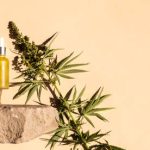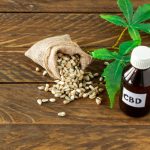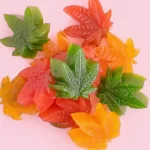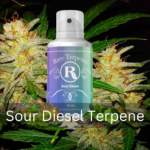In recent years, THC edibles have surged in popularity as a discreet, enjoyable, and effective way to consume cannabis. Whether it’s a chewy gummy, a chocolate bar, or a baked good, edibles have become a mainstream option for both recreational and medical cannabis users. Unlike smoking or vaping, which deliver quick effects, edibles take a slower, more gradual approach, offering a different experience altogether. In this article, we’ll explore what THC edibles are, how they work, their potential benefits, and important considerations for safe consumption.
What Are THC Edibles?
THC edibles are food products that have been infused with tetrahydrocannabinol (THC), the psychoactive compound in cannabis responsible for the “high” or euphoric feelings. These products come in a variety of forms, including gummies, chocolates, cookies, beverages, and even savory snacks. The key factor that sets edibles apart from other forms of cannabis consumption, like smoking or vaping, is that they need to be digested before the THC is absorbed into the bloodstream.
Once consumed, THC is processed by the liver, where it is converted into a more potent form, 11-hydroxy-THC, which produces stronger and longer-lasting effects. This process is slower than inhalation, which is why the onset of effects from edibles can take anywhere from 30 minutes to 2 hours to be felt, depending on factors like metabolism and the individual’s tolerance.
How Do THC Edibles Work?
When you consume a THC-infused edible, the THC passes through your digestive system and is metabolized by the liver. The liver converts THC into 11-hydroxy-THC, which is much more potent than the original compound. This metabolite is responsible for the more intense and long-lasting effects of THC when consumed in edible form.
The reason for the delayed onset is that the body needs time to digest and process the edible before THC can enter the bloodstream. This is why many users often make the mistake of consuming more edibles if they don’t feel effects immediately, leading to accidental overconsumption. As a result, the high from edibles tends to last much longer than the high from smoking or vaping, often lasting anywhere from 4 to 8 hours or more, depending on the dose.
Benefits of THC Edibles
Discreet and Convenient
One of the biggest advantages of THC edibles is their discretion. Unlike smoking or vaping, which can produce strong odors and draw attention, edibles are consumed just like any other food item, making them a more subtle option for users who prefer privacy. They also don’t require any special equipment, like pipes or vaporizers, making them more convenient for on-the-go use.
Longer-Lasting Effects
Due to the way THC is metabolized when consumed as an edible, the effects tend to last much longer compared to inhaling cannabis. While smoking or vaping typically results in a high that lasts for about 2-3 hours, edibles can keep you feeling euphoric and relaxed for 4 to 8 hours or more. This extended duration makes edibles an attractive option for people who need sustained relief from conditions like chronic pain, insomnia, or anxiety.
Precise Dosing
Many edibles are packaged with a specific amount of THC per serving, making it easier for consumers to control their dosage. For instance, a single gummy might contain 5 or 10 milligrams of THC, allowing users to start with a low dose and gradually increase until they find the right amount for their needs. This precise dosing is particularly helpful for medical users who require consistent and reliable doses for conditions like pain management or nausea relief.
Healthier Alternative to Smoking
For individuals who want to avoid the harmful effects of smoking, THC edibles provide a healthier alternative. Smoking cannabis can irritate the lungs and cause respiratory issues over time, but edibles don’t involve any combustion or inhalation of smoke. While consuming edibles still involves ingesting calories, they are generally considered a less harmful method of consuming THC compared to smoking or vaping.
Variety of Choices
THC edibles come in a wide range of flavors, types, and formats, which allows users to choose products that align with their personal tastes. Whether it’s a sweet treat like a gummy, a savory snack, or even a drink, there’s a THC edible for everyone. This variety allows users to incorporate cannabis into their daily lives in a way that feels natural and enjoyable.
Considerations for Using THC Edibles
Slow Onset of Effects
As mentioned earlier, one of the key differences between THC edibles and other methods of consumption is the delayed onset of effects. It’s crucial to remember that THC edibles take time to kick in. Depending on your metabolism, the onset time can range from 30 minutes to two hours. Many users make the mistake of consuming more edibles if they don’t feel the effects immediately, which can lead to uncomfortable and overwhelming experiences.
To avoid this, it’s important to start with a low dose and wait at least 1-2 hours before consuming more. A common starting dose for beginners is 5 milligrams of THC, and you can always take more if you feel comfortable doing so.
Overconsumption Risk
Due to the delayed onset and the fact that it’s easy to underestimate how much THC you’ve consumed, there’s a higher risk of overconsumption with edibles. Consuming too much THC can lead to feelings of anxiety, paranoia, dizziness, or even nausea. In extreme cases, overconsumption can result in a more intense experience than intended, causing discomfort for several hours.
If you do consume too much, remember that time is your friend. The effects of THC edibles wear off eventually, and you can drink water, eat food, or rest to help ease any discomfort. If you’re ever in doubt, it’s best to wait and see how you feel before consuming more.
Impact of Tolerance
Your individual tolerance to THC plays a significant role in how you’ll experience edibles. People who are new to cannabis or have a low tolerance may find that even small doses of THC are enough to produce strong effects. On the other hand, experienced users with higher tolerances might need larger doses to achieve the desired effects.
It’s important to gauge your tolerance gradually and always start with a lower dose, especially if you are new to edibles.
Effects on Different People
The effects of THC edibles can vary significantly from person to person, depending on factors like body weight, metabolism, and the presence of food in the stomach. Some individuals may feel the effects more quickly or intensely than others. Additionally, people with different medical conditions may respond to THC in unique ways. It’s a good idea to experiment with different doses and products to find what works best for your body.
Storage and Safety
THC edibles should always be stored safely, out of reach of children and pets. Many edibles are packaged in bright, appealing colors and shapes, which can make them look like regular candy or snacks. This could pose a safety risk, so it’s important to keep them in a secure place and label them clearly to avoid accidental consumption.
Conclusion
THC edibles provide a unique and enjoyable way to consume cannabis, offering a variety of benefits including discreet consumption, longer-lasting effects, and precise dosing. While they are an appealing option for both recreational and medicinal users, it’s important to approach edibles with caution due to their delayed onset and potential for overconsumption. By starting with a low dose, waiting for the effects to kick in, and being mindful of your tolerance, you can have a positive and safe experience with THC edibles. As the market continues to grow, edibles will likely remain a key component of the cannabis landscape, providing a versatile option for those looking to enjoy cannabis in a more culinary and convenient way.
Medical Disclaimer:
The information provided in these blog posts is intended for general informational and educational purposes only. It is not a substitute for professional medical advice, diagnosis, or treatment. Always seek the advice of your physician or other qualified healthcare provider with any questions you may have regarding a medical condition. The use of any information provided in these blog posts is solely at your own risk. The authors and the website do not recommend or endorse any specific products, treatments, or procedures mentioned. Reliance on any information in these blog posts is solely at your own discretion.
















